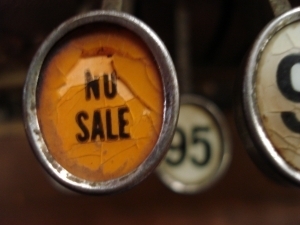Monica Shaughnessy's Blog, page 8
September 21, 2013
The Importance of Fans
 A few days ago, I went to see a couple of guys play music at a bar. One of the men was unfamiliar to me, but the other I’d been a fan of for years. I won’t tell you his name–I’m not here to drag anyone down–so let’s call him Mr. X. For whatever reason, his music resonates with me. Since Mr. X no longer lives in my neck of the woods, I hadn’t seen him perform in quite awhile–ten, fifteen years, maybe? As you can probably guess, I was excited to attend the show.
A few days ago, I went to see a couple of guys play music at a bar. One of the men was unfamiliar to me, but the other I’d been a fan of for years. I won’t tell you his name–I’m not here to drag anyone down–so let’s call him Mr. X. For whatever reason, his music resonates with me. Since Mr. X no longer lives in my neck of the woods, I hadn’t seen him perform in quite awhile–ten, fifteen years, maybe? As you can probably guess, I was excited to attend the show.
And Mr. X didn’t disappoint. Great guitar work, smooth vocals, funny banter.
But Mr. X did disappoint after the show. On my way out of the club, I stopped to look at the obligatory table full of CD’s and thought about buying one. By complete coincidence, Mr. X turned up a few minutes later. He readily shook my husband’s hand, asked him his name, etc. Me, he ignored. Even when my husband mentioned that I was a fan of his, the best he could say was, “Oh, yeah?” before turning his attention elsewhere. At the end of this ten second exchange, I realized that Mr. X hadn’t even made eye contact with me, not that I could tell, anyway. And, no, I wasn’t drunk, fawning, stalking, groveling, hollering, giggling, or otherwise acting the idiot. I was just one of the faceless people in the crowd who happened to pass by on my way out the door. Really. No, really.
Here’s the thing: if Mr. X had shaken my hand or said, “Glad you like my music,” or, heck, just looked me in the eye, I would’ve forked over ten bucks for one of his CD’s. I’d already paid much more just to listen to his music. Needless to say, I left without making a purchase.
As an author, I’m aware of the need for fans. And as an indie author, I’m acutely aware of the need. They’re the people responsible for the checks (meager, though they may be) that hit my bank account each month. Even the big guys can’t afford to snub readers (though some do, I’m sure) because readers are the ones who catapult them to the bestseller list each year, the ones who pay for their vacation home in Antigua, etc., etc.
Let’s face it, outside of a few scary individuals, fans are just people who’ve gravitated toward a particular thing or person or business they like. They don’t turn up at gigs or book signings or movie premiers or product launches to steal your soul. They show up to support you, sometimes monetarily. Now, if they show up at your house, that’s a different kettle of fish, one that requires a restraining order, and certainly not the good folks I’m talking about.
Could be that Mr. X was having an off night. Maybe he had a headache or was hungry or tired or just plain sick and tired. I get that. I’m sure it’s hard to be “on” for hours without a break. So I gave him the benefit of the doubt that night.
I just didn’t give him my ten bucks.
——————————->
How about you? Ever have a disappointing experience like mine? Ever have a good experience? Share!


September 17, 2013
Book Trailer for Doom & Gloom
This post should’ve been titled, “How to Kill An Entire Day,” because that’s the amount of time it took for me to 1) teach myself iMovie, 2) create and import a bunch of art, and 3) learn how to format, upload, share, etc. But now that I’ve got it figured out, I can make other trailers with greater ease (that’s the plan, anyway).
I pity the self-published author who’s not technically savvy. There’s a VERY steep learning curve to this business. Anyway, here’s the trailer. I’d love to hear your thoughts!


September 12, 2013
The Volume Business of Self-Publishing – Are We Doomed to Low Quality?
 “Short is the new long in self-publishing.”
“Short is the new long in self-publishing.”
I said this to my critique group yesterday, a group that mostly favors trad publishing. They wondered if this strategy had anything to do with decreasing attention spans. It does, of course. People are becoming more and more accustomed to skimming short pieces on the web, and this has definitely affected their likes and dislikes with regard to reading material. But, I explained, in order to “make it” as a self-published author, you have to have volume. And in order to have volume, you can’t publish one book a year, especially if you don’t have a backlist. The general consensus–after a bit of eye rolling–was that volume = low quality. But does it?
Let’s take a look at two very different “volume” businesses: Starbucks and McDonalds.
Trend Riding: Both McDonalds and Starbucks rode the Baby Boomer trend, though at opposite ends. McDonalds capitalized on the rising tide of young ones in the 60′s and 70′s, and Starbucks caught them in the 90′s after they’d grown up. Self-publishers, too, ride trends. New adult, anyone? Erotica, anyone? But I don’t hold much stock in the old saw that genre writers only crank out junk. It may be what the snobbiest lit fic writers tell themselves before turning out the lights, but it ain’t true.
Streamlined Execution: The two mega-giants have their production timed to the second in order to deliver product in a timely manner. DIY authors, the best ones, anyway, have their “production team” in place for each book. They know who to go to for editing, book covers, formatting help, etc., so that they can pull the trigger and fire off that book in an expeditious manner. To me, this only improves the quality of a book when professional help is enlisted. Unfortunately, not all self-pubbers turn to professionals. Too many cut corners, skipping crucial steps, and put out a less than stellar book. But if done right, streamlining the process does not have to equal low quality.
Global Expansion: McDonalds became famous for exporting the American lifestyle overseas. While this makes me cringe–I can think of better cultural ambassadors!–it’s still an interesting fact. Starbucks, on the other hand, made great strides in Asian markets where houses are small. People, it seems, need a place to hang out besides home, and Bucky’s offers a variety of cozy chairs–if you can find one. Every time I go, they’re all taken by a bunch of freeloading, laptop-toting hipsters nursing tall regulars for hours on end. Leave! Leave already! I digress… Book distributors make it easy for authors to expand into international markets. But from my own experience, only the English-speaking markets have any interest in my books. And rightly so. I’d love to have a Spanish version of my book, but it’s cost-prohibitive at this point. Bottom line: global expansion doesn’t mean you’re pushing poor product on people.
Precise Market Segmentation: Ah, now this is where the rubber meets the road. Starbucks has always prided themselves on offering “affordable luxury.” It’s a freaking genius strategy, if you ask me. It gives people the sense that they, too, can have the best that money can buy, even though they drove to get it in a rattle-trap Honda with spray-painted fenders. Other places offer coffee that’s just as good, but Starbuck’s cultivates a comfortable stay-awhile atmosphere that’s just as crucial as what’s in the cup . McDonald’s, as we know, puts out fare for the masses. Nearly 300 billion burgers sold, by last count. Crap, right? Yes and no. I’m not a big fan of their hamburgers, but they must be doing something right to sell so many. Enter the DIY author. They sell at either end of the food chain–from long, flowing sagas with languid prose to zippy horror stories that can be consumed with the speed of a Big Mac. But quick consumption does not necessarily equate poor quality. But, but, but…if an author publishes a book with numerous spelling and grammar errors and a plot that nosedives in chapter five, this is akin to serving a hamburger. With a hair in it.
I hope I’ve convinced any doubters that, in the hands of a skilled writer, volume does not equal low quality. In the hands of an unskilled writer? I’d advise opening that burger before taking a bite.
—————————>
What about you? Do you prefer to read short or long pieces? For the writers in the group, are you pursuing a volume strategy? Or do you prefer to publish longer works less frequently?


September 11, 2013
Remembering 9/11 – Finding the Positive in the Negative
 Today, September 11th, is a difficult day for many of us. To say I wasn’t personally affected would be a lie because even though I didn’t lose a loved one or a family member, I was, and still am, very much affected by the tragedy. And while those awful newsreels still play in my head, my heart holds a different memory: for one shining moment, we as a country, regardless of politics, race, religion, or creed, pulled together as Americans. This, to me, is the historic event we should mark today, not the devastation.
Today, September 11th, is a difficult day for many of us. To say I wasn’t personally affected would be a lie because even though I didn’t lose a loved one or a family member, I was, and still am, very much affected by the tragedy. And while those awful newsreels still play in my head, my heart holds a different memory: for one shining moment, we as a country, regardless of politics, race, religion, or creed, pulled together as Americans. This, to me, is the historic event we should mark today, not the devastation.
Is America perfect? Absolutely not. We have our share of problems. Crime is too high. The economy is in the dumps. Our governmental systems are broken. And we can’t seem to agree on anything when it comes to politics. But I liken my relationship with my country to a good, solid marriage–I find fault with the U.S., but I don’t love it any less.
So as you go about your business, wearing (hopefully) your red, white, and blue, do so not only with as sense of remembrance for the fallen and for the heroes, but also with a sense of remembrance of what it felt like to be one country again. Even if the guys on Capitol Hill won’t shake hands, we, as citizens, can treat one another with respect and kinship today.
Peace, after all, begins at home.


September 6, 2013
Genetic Superheroes vs. Gadgeteer Superheroes – Who Rules the Universe?
As a kid, I lived on a steady TV diet of superhero shows like Batman, Shazam!/Isis, The Incredible Hulk, and Wonder Woman. And when The Six Million Dollar Man came on, you’d betta not change the channel or I’d whoop you with a Steve Austin-style bionic kick. It’s no wonder that I wrote a book about superheroes!
When I first began outlining Doom & Gloom, I had a choice to make: should I imbue my main character with mutant/genetic super powers (like Spiderman) or give him a superior intellect and awesome gear (like Iron Man)? I know I’ve simplified things a bit. But there are more types of superheroes than I can comfortably cover in a few hundred words–aliens, gods, and altered humans, to name a few–and I had to boil it down for the sake of brevity.
Anyway, for better or worse, I chose the Iron Man route, giving my hero, Dane Winter the Sixth, an incredible amount of wealth, an above-average intellect, super skills, and a slew of gadgets to accomplish his missions. Why? There’s something about a hero who relies on his wit, not his physical strength, that’s infinitely appealing. And, to be honest, my heart has always belonged to Batman. Sock! Pow! Bong!
And what’s a good superhero without a foible? Enter xeroderma pigmentosum, a nasty genetic disease that hit my radar after I watched the super-creepy movie, The Others. XP renders patients incapable of repairing UV damage to their skin and makes them thousands of times more likely to develop skin cancer. Because of this disease, my fictional character is able to see in the dark better than the average human, not through any supernatural cause, but through constant nighttime and low-light exposure. In fact, he draws his name–Gloom–from this unique skill. Doom, on the other hand, suffers from no diseases. She’s simply a klutzy girl plagued by superstition who manages to best villains by falling into or over them.
If you’re still not convinced that “every man” heroes are every bit as compelling as mutants, watch Stan Lee’s Superhumans. Each episode provides shining examples of human excellence taken to superhuman lengths (like Dane’s eyesight). Not only is Stan Lee the mack daddy of the superhero genre, it’s a riveting half-hour of television. Can’t compare to Batman, though. Not even close. Sock! Pow! Bong!
—————————————>
Doom & Gloom is currently free on Amazon (9/6/13 – 9/8/13) if you’re curious about my character.
How about you? Which type of superhero do you prefer? Gods, like Thor? Aliens, like Superman? Vigilantes like The Green Hornet? Please share!


August 4, 2013
Question: Has The Internet Devalued The Written Word?
I was hanging in a coffee shop the other day with a group of writers when one of them lamented that the internet had devalued writing. I whole-heartedly agreed at the time, but then, being the neurotic sort that I am, I began to parse through the issue.
Glass Half-Empty: “When anyone can publish a book on the Internet, anyone will.”
The advance of technology forever changed our literary landscape. Do-It-Yourselfers turned a calm, staid book buying experience–something akin to shopping for an alpaca sweater at Barney’s–into a hot, sweaty Calcutta bazaar. Case in point: On Twitter yesterday, close to 80% of the tweets contained automated “Look at my book!” links. Enough already. I’m not going to buy your flippin’ steampunk assassins novel, especially when you can’t be bothered to spend ten seconds on a real-time tweet. M’kay?
Glass Half-Full: “The internet is the great equalizer.”
The advance of technology forever changed our literary landscape. No, that’s not a repetitive typing mistake. I, myself, am part of that sweaty Calcutta bazaar, though, I hope the classier section that contains brass statues and hand-loomed rugs. And if it hadn’t been for self-publishing, I might still be on sub. Heck, I could be on sub today and not even know it considering the fact that I recently received a rejection on a TWO YEAR OLD query in which the editor had actually expressed interest. Zzzzzzz……
No matter which side of the coin you find shiniest, you can’t deny that the internet has altered how and where we access information. We want it now, while we stand in line at the grocery store or pump gas or hover over our Big Macs. Sadly, once-revered words have become a cheap commodity, skimmed in the margins of our day with a flick of the thumb. Or have they? Discerning readers still value those organized by a skilled hand. Right?
And then I stumbled across an indie author who crystallized everything.
He’s got a (relatively) successful series that’s received (mostly) positive reviews and then a real stinker with a terrible cover and a low rating for .99 cents. On closer inspection, I discovered that the bad apple in the barrel wasn’t a novel, but a twenty page short story–a respectable length for this kind of thing, I might add. The reason for the bad reviews? People didn’t like paying “that much” for “that little.” Then, to add insult to injury, the author added a caveat in the description (probably because of the bad reviews), “warning” readers that they were about to buy a short work and apologizing for not being able to charge less due to Amazon’s pricing system. I was incensed! Even if the author didn’t labor over the story ad infinitum, it still probably took him several days to write and edit it and the average person thirty minutes to read it. Why the ire? The cup of Starbucks I bought that evening in the coffee shop cost $4.50 (don’t judge me, I like the extras), and I drank it in about fifteen minutes. The conclusion is obvious: words, indeed, have become a cheap commodity, cheaper than a cup of joe.
Then I took a closer look at his other books, the ones that were selling reasonably well. They were .99 cents, too (this wasn’t a temporary sale, but the normal price). No wonder readers were angry! The author offered both his 250 page novels and a 20 page short story for the same price! Folks, he sank his own battleship. Of course, after I thumbed through a few of his samples, I understood why he needed to sell them for that little: lots of exposition, accidental repetition, stilted and obvious dialogue, the list goes on… Still, he was selling, and this undoubtedly supported his side gig of teaching workshops to newbie authors. (“See my shiny books? I’m successful. You can trust me.”) I then drew a new conclusion: words are cheap, but only when they need to be or have to be.
Bottom Line: The internet didn’t devalue the author’s work; the author devalued the author’s work.
I’m not advocating price gouging. I’ll leave that to the big guys. Though I am advocating charging a fair price for hard work (temporary sales notwithstanding). No matter how or where words are delivered, they have value, even on the internet. But there’s no denying that some command a higher price than others. To bring back the coffee analogy, if you’re serving up Sanka, you’re going to have to sell at Sanka prices. (that’s cheap instant coffee, for those of you who don’t know) But if you’re offering a cappuccino, do yourself a favor and charge what’s right. Where am I in all this? Probably not Starbucks. That’s the corporate end of java. I’m more like the artsy coffee house, hidden on a side street, frequented by regulars. One day, I may find myself on main street, slinging my strange brew to hordes of readers. But it won’t be because I priced it too low.
——————————>
Where do you stand on this issue? Glass half-full or empty? Do you think the author devalued their own work? Or do you think low prices are the only way to compete in the current marketplace?


July 30, 2013
Is Free Dead? (My love/hate relationship with KDP Select)
 It’s no secret that Amazon is trying to limit the number of free books flowing from their site. Since introducing KDP Select, they’ve made numerous changes to the program in search of that goal, changes that have had a detrimental effect on authors’ sales:
It’s no secret that Amazon is trying to limit the number of free books flowing from their site. Since introducing KDP Select, they’ve made numerous changes to the program in search of that goal, changes that have had a detrimental effect on authors’ sales:
constant algorithm tweaks that keep authors’ rankings from inflating after a giveaway
limiting the number of free books affiliate websites can advertise
changing the “also boughts” so they don’t reflect free
re-categorizing the store to shuffle “free” best sellers to the side, moving them more clicks from the customer
These are the biggies that I’m aware of. I’m sure there are some tweaks that my readers know about that I don’t (feel free to post them in the comments) and some that Amazon has implemented that no one has caught on to. Now before you start with the “don’t be hatin’ on the ‘zon” rhetoric, I understand why Amazon has implemented some of these changes (though not all). Just like me, they’re in the business to make money. But if they’re not careful, they’re going to shoot themselves in the foot.
My first giveaway gave me a bounce. I was in love with Mr. KDP Select! My second giveaway (on a different book) gave me no bounce and my numbers were less than half of the first giveaway. I was beginning to see flaws in Mr. KDPS–he’d changed since we began our relationship–but I hung in there, thinking my book was getting “hooked” into the store. My last giveaway (on a third book) was dismal. I’m slowly coming to the conclusion that, as charming as he is, Mr. KDPS isn’t worth the exclusivity and the hassle. And all of this in eight months. Will I be tempted back into his arms? Maybe. But I’m going to resist for now. (Seinfeld fans: Remember the episode where Elaine takes Puddy back a dozen times–for a roll in the hay–only to break up with him the next morning over some small slight? Yeah, this is kind of like that. No, this is exactly like that.)
By changing the parameters of KDP Select, Amazon is not only shaping sales and customer behavior, they’re also shaping author behavior. If KDPS becomes wholly unattractive as a marketing tool, many authors will leave the program (some already have). Amazon will not only lose exclusivity on a number of books, indie and trad published, it will lose content for Amazon Prime members. To me, this is the biggest “uh oh.” They’ve pumped a lot of money into Prime and need books for their members to borrow. Yes, they have their own books. But we’ve seen this collapse on the other side of the fence: people crave authors, not publishers. Can the ‘zon really fill all Prime content needs in house? Maybe, but it will take years (not to mention a hefty chunk of cash since they pay advances).
I’ve said it myself: the game changes daily. So who knows? Maybe Amazon is hard at work on a new marketing program that will blow our socks off. If they develop one, I’ll be the first to join before they bend the rules and dry up the gravy. For now, though, I’m going to try .99 cent sales and rely on competitive pricing if I want to offer something free (though I’ve heard this is a crap shoot as well). Oh, and sky writing, lots of sky writing — the next big thing, haven’t you heard? 
I have one last giveaway scheduled for Doom & Gloom before my Select enrollment ends. Will Mr. KDPS break my heart again? Or renew my interest? Only time…and downloads…will tell.
————————–>
How about you? Have you had great success (recently!) with a free promotion? Have you moved on to another, more successful marketing ploy? Disagree with me? I’d love to hear your thoughts!


July 3, 2013
Poll – Dogs vs. Cats: Who Makes the Better Writing Companion?

My Two Crazies
There’s no denying the connection between cats and books. Like milk and cookies, they compliment each other perfectly. But I’m talking about reading books, not writing them.
Cats sleep a lot. Cats stay indoors, for the most part. Cat’s don’t disturb you for a potty break. Cats are (relatively) quiet. And best of all, they seem to amuse themselves quite easily. In other words, they possess qualities that support a peaceful afternoon of reading on the couch.
Dogs, on the other hand, are easily distractable. Dogs want to go out, they want to come in, they want to go out… Dogs need walking, especially for potty breaks. They’re loud. Very loud. (I have a hound dog that howls.) And their idea of “amusing themselves”usually involves shredding a pair of underwear or rooting through the bathroom trash for treasure. Doesn’t seem conducive to writing, does it? After all, one needs hours of uninterrupted time at the keyboard to create a masterpiece.
Yes and no.
The best thing a writer can do for themselves (and their health) is get up from the keyboard occasionally. Stretch, go for a walk, experience the weather (and not just through a window). If I ever get bogged down by my story, I take the dogs for a spin around the block. The rustle of leaves, the rough concrete under my shoes, the humid air–these things distract me while my subconscious works out my plotting problems. Brilliant. And then there’s the obvious benefit of exercise, something chair-bound writers need more than most.
Now if you’ll excuse me, I’ve got two crazies who are scratching to be let out.
—————————–>
What about you? Do you write better with dogs? Or do cats rule?
Take Our Poll


June 24, 2013
Tips from a Book Publicist
I went to a workshop given by a book publicist (put on by the Writers’ League of Texas) and learned quite a few things. Thought I’d share the best of the best with you all. I plan on completing (or engaging in) most of the things on the list this summer.
Here they are, in no particular order:
Blogging only accounts for 25% of your reach. Social networking (Twitter, FB, etc.) accounts for 50% – spend your efforts accordingly
Socialize when your target market is active, not when you feel like being active
Use keywords in your article titles, not just in your posts
Google + is gaining, now has more relevance than Pinterest or Goodreads (yeah, this surprised me, too)
When blogging, commit to at least 2 posts a month
Guest posters don’t have to be other authors. Invite subject matter experts to post on your blog. For instance, if you write historical mysteries set in Scotland, invite a Scottish historian to post on your blog
All authors should have a downloadable media kit on their website (head shot, bio, book synopsis, book cover, trailer, review snippets, etc.)
When contacting media outlets to schedule interviews, explain not only why your subject is hot, but why you’d make a good guest (you’re personable, funny, not mic shy, etc.)
Videos are now MANDATORY for authors: welcome videos on your website, book trailers, interviews, etc. You Tube channel, anyone? (I’ve been avoiding this for far too long…)
PRWeb is a great place to distribute press releases. Make sure to front load keywords in the first 65 words.
Write feature stories for a byline that links back to you
Never have a book event where you have to bring your own traffic; always go where the traffic is already present
Of course, these things seem to change hourly. But here they are, as of June 2013. I hope you find them of use.


June 22, 2013
Free Book Download: Doom & Gloom
If anyone’s curious about my new middle grade novel, Doom & Gloom, it’s free to download this weekend on Amazon.
**Note to my regular followers: Don’t worry, I’m not going to keep spamming about my book. I know how annoying that is.**
Look for a brand new post from me on Monday about book publicity. I’ll be sharing some of the things I learned at a Writers’ League of Texas workshop I recently attended.
And while we’re on the subject of promotion, does anyone out there have experience with the 99 cent sale? I heard it’s overtaking “free” and producing better results.







